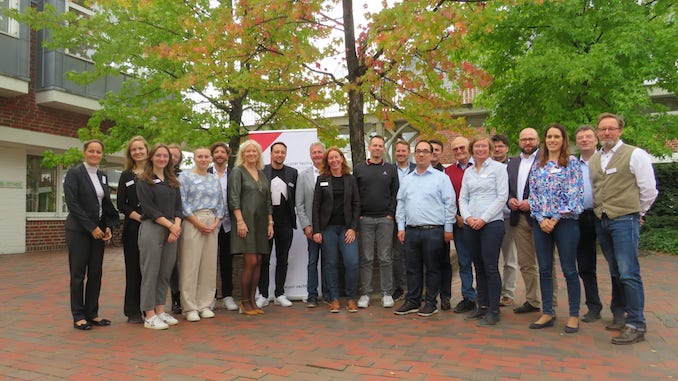“Meat of the Future” - First scientific conference in Germany

The first scientific conference on cultivated meat in Germany took place in Vechta from October 04th to 06th. Around 30 experts from very different disciplines and from practice came together for this purpose. The status quo of in-vitro meat production as well as existing challenges and possible solutions were discussed for two and a half days. Invited to the conference Professorship for Economics and Ethics under the direction of Prof. Dr. Nick Lin Hi. “We have to bundle research and bring together different perspectives in order to move this future technology forward!” says the strategy researcher.
The event is part of the future discourses supported by the Lower Saxony Ministry of Science and Culture, which are aimed at promoting a rational social discourse based on data and facts. Accordingly, the conference was also about presenting one's own research work in as generally understandable a way as possible and talking to each other across disciplinary boundaries. And so at the conference, researchers from biology and biotechnology, engineering, medicine, economics, law and psychology discussed questions and answers about this “Meat of the future”.
The result of the conference is a “big picture” of cultivated meat, which brings together technological and social aspects. The participants agreed that cultivated meat is an innovation on the verge of entering the market that makes sustainable meat consumption conceivable. The in-vitro production of meat could not only significantly reduce the immense ecological footprint of today's meat industry, but also contribute to global food security. In view of an expected world population of almost 10 billion people in 2050 and the continuous loss of agricultural land due to climate change, new approaches are needed for the global supply of proteins. “Ultimately, in-vitro technology makes it possible to produce meat without animal suffering and also offers starting points for making meat products better and healthier. I am convinced that the fusion of biotechnology and food technology will fundamentally shape the future of nutrition,” says Professor Lin-Hi, who at the same time sees considerable pressure for transformation on the agricultural and food industry. Accordingly, the cultivated meat expert also demands: “We have to be bolder and need much more commitment in business, politics and research. Only then can Germany remain competitive in the long term.”
